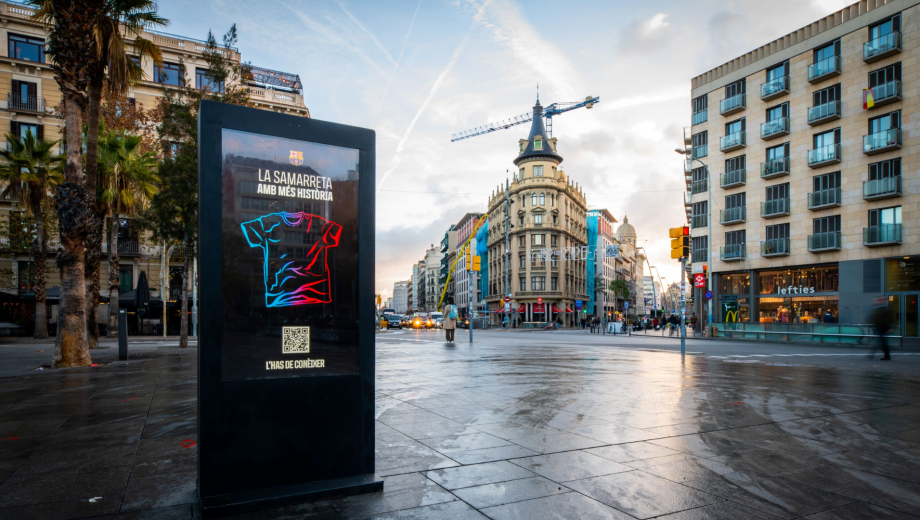Barça Foundation’s FutbolNet also supports Refugees
‘FutbolNet’ is a methodology of the Barça Foundation that uses football as a tool to promote values among young people. The objective of the FutbolNet project is to provide support to children and young people by fostering integration and social cohesion and by creating favourable conditions for violence prevention by using sport as an educational tool. To highlight the impact that this methodology has on young people Barça Foundation gives a voice to four refugee youth.
FutbolNet is a tool designed to make a big difference in the communities where it is implemented. The dimensions of its social impact vary in each context, depending on each specific disposition and the cultural context of the community, where it is being implemented. The club recently shared four stories of participants of FutbolNet projects for refugees:
Ibrahim’s strength to keep going
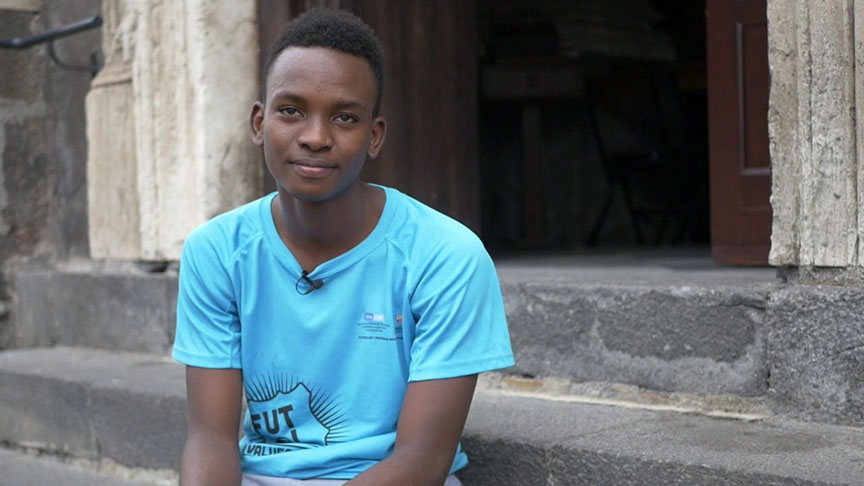
Ibrahim is a 17-year-old Guinean. He arrived in Italy only one year and seven months ago, but he can already speak near-perfect Italian. He is one of the beneficiaries of the Cooperativa Prospettiva project in Catania, in the district of San Giovanni Galermo. This social cooperative was established in 1981 and traditionally works with people in vulnerable situations.
Guinea’s literacy rate is one of the lowest in the world. According to 2012 estimates, only 29.5% of adults can read and write. Primary education has been compulsory for the last eight years, but most children do not attend school. Ibrahim could be Guinea’s Prince Valiant in the Days of King Arthur. The most admirable thing is that he never accepted something that would normally come naturally. He has managed his past by adapting it to a present that he commands with determination.
Guinea is a country rich in minerals, including bauxite, diamonds, gold and aluminium. Its economy depends on agriculture and mining. But a large part of its population (more than 60%) lives below the poverty threshold. This young Guinean has taken his fate into his own hands and moulded it to his own needs.
“I’m one year away from going to university,” he says. “I want to be a computer programmer. Thanks to FutbolNet, I am fully integrated into Italian society. Playing with Italians has helped me to get to know them better and to be able to express myself without difficulty”.
Guinea was one of the countries hit by the 2014 Ebola epidemic, along with Liberia and Sierra Leone. “I always knew that I wanted to get out of Guinea and study” he continues. “I have never stopped having difficulties, but I also have dreams. Thanks to sport, I learned to have values, to play in a team and to respect my fellow players.”
Verbina’s courage
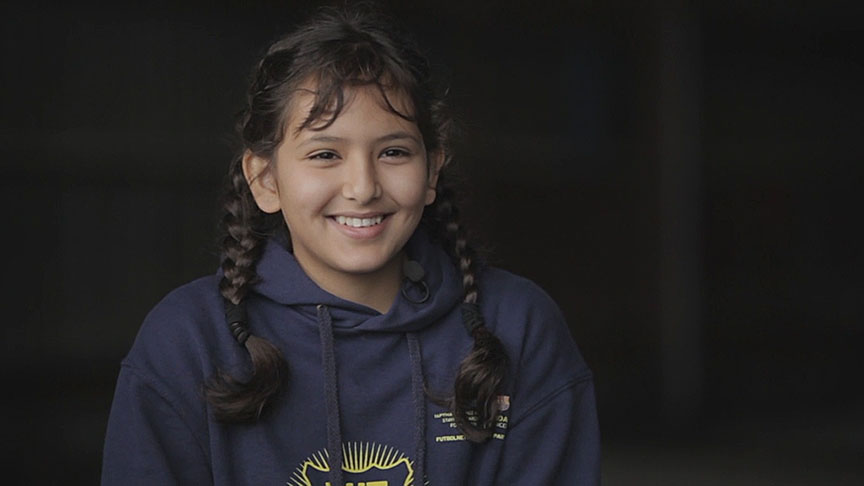
Verbina is 12 years old, dark-skinned, and has long, black plaits like olive branches. She could be a Leo Tolstoy heroine. Not just because of her courageous attitude and her open, noble character, but also because of the strength and determination she conveys. If character is fate, then it will be hard for the future to dampen her resilience. Her exile commenced on the day she fled from Iran, as the golden light was just beginning to strike the bazaars and filter through the skylights.
She walked 2,258 kilometres from her native Iran to Turkey. A journey that she was forced to make under the blazing sun, in temperatures of over fifty degrees Celsius. She left behind a childhood where her mother would read her stories of wolves and rabbits, glow worms, orange trees, and poems by Hafez de Shiraz. One million people are living in exile in Lebanon. A veritable wave of humanity being pushed by despair. Verbina now lives with her family in the Bekaa Valley refugee camp, surrounded by arid mountains.
The Iranian girl wants to be a doctor. “What I would like to do most is save a lot of people,” she says. Incredibly, despite seeing so much suffering at such a young age, the light still shines in her eyes.
Verbina is one of the beneficiaries of the Barça Foundation refugee programme, which hopes to build the strength of refugee children and give them the tools to prevent and resolve conflicts and foster social inclusion and integration. “It has been very hard,” she says. But FutbolNet has helped me to make friends and also to forget. I have the most fun when I’m playing football. I don’t like to remember the bad times.”
The refugees in Bekaa are in a very difficult situation. There are no easy answers when it comes to explaining their plight. But sport helps them to cope with the traumas caused by war and exile, and generates emotional well-being and restores their faith in the human race.
“I don’t want to die feeling like a foreigner”
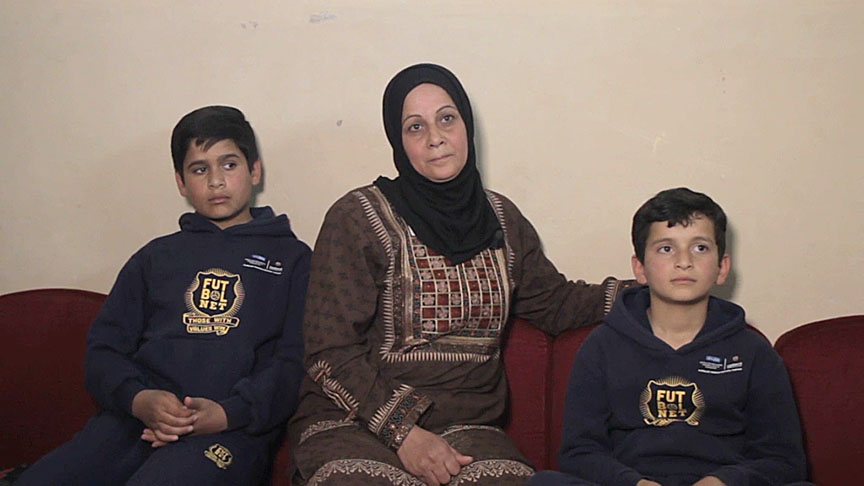
Siham is a teacher who fled the war and bombs in Syria with her two children. “There was not one morning when we felt sure that we’d still be alive the day after,” she says. “In my country, we have a saying that ‘delicate hands soften the iron’. I guess that means that, in the face of the brutality of war, reason and intelligence will eventually arise. It didn’t turn out like that. Here in Bekaa Valley, we have found a little bit of peace, but we dream about returning to our country.”
What started as a peaceful uprising against President Baixar al-Assad in March 2011 has become a brutal, bloody civil war that has dragged in regional and international powers. According to the Syrian Observatory for Human Rights, the organisation that has provided the most recent data, between 353,593 and 498,593 people died from March 2011 to March 2018. However, the figure could be even higher, but certain areas of the country are hard to reach and it isn’t easy to make sense of the numbers presented by the different sides.
Siham’s face has been shaped by tears. There is a definite air of sadness around her family. Her two children stand beside her and look weary of hearing about death, bombs and despair. They hold onto their mother, and the only thing that seems to recover their lost childhood is the football field. “Thanks to FutbolNet, they have become children again, although that doesn’t mean that there aren’t conflicts between Lebanese and Syrian children.” Fortunately, the monitors have helped a lot to generate a greater understanding.
According to figures from the United Nations High Commissioner for Refugees (UNHCR), more than five million people have fled Syria because of the war, making it one of the biggest exoduses in recent history.
Chasing a lost dream
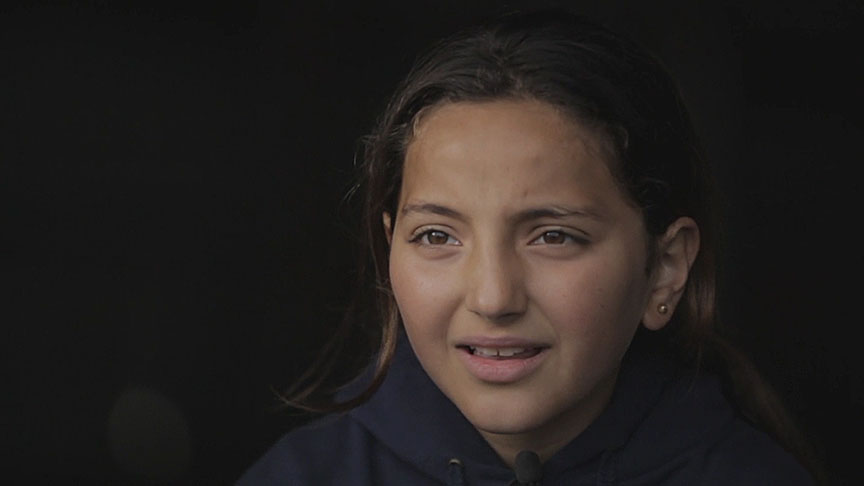
Narmen is 11 years old and comes from Kurdistan. She looks a bit tired, and there are sparks of sadness in her eyes. She comes from a landlocked region, divided between four states: Turkey, Iraq, Iran and Syria, as well as a small enclave in Armenia. Most of the Iraqi and Iranian oil reserves are in this territory and all of Syria’s.
However, none of her homeland’s wealth has served to make her life any easier. “I have no dreams,” she laments and does so with all the spontaneity of a girl who is not able to understand the immensity of her words, which evoke the solitude reflected in the poem Football by Kurdish poet Abdulla Pashew: “The news agencies have announced a football match. The teams: the Kremlin and the White House. The ball: the skull of a Kurd. The goal: Kurdistan. The spectators: the world, silent as a grave.”
However, Narmen does not feel abandoned and says she has spent the happiest times of her life playing sport on the Bekaa refugee camp. “FutbolNet has shown me how to play in a team” she explains. “It has helped me to overcome the fear of sharing the field with children that might be stronger than me, and it has taught me values like respect.” She wants to be a paediatrician. If she can ever get to Europe, she also wants to continue playing soccer. Before she arrived in Lebanon, she had never even heard of Barça. But now her face lights up at the mere mention of Messi’s name.
“FutbolNet has shown me how to play in a team” she explains. “It has helped me to overcome the fear of sharing the field with children that might be stronger than me, and it has taught me values like respect.”
This young Kurd is living proof that dialogue is the greatest tool for finding a way out. FutbolNet is not just a methodology that uses sport to build self-esteem, it also changes attitudes to the world around us. The fun of doing sport has rebuilt and normalised the lives of these young people and helped them to have a more positive and less troubled attitude to a life that has been a constant challenge.
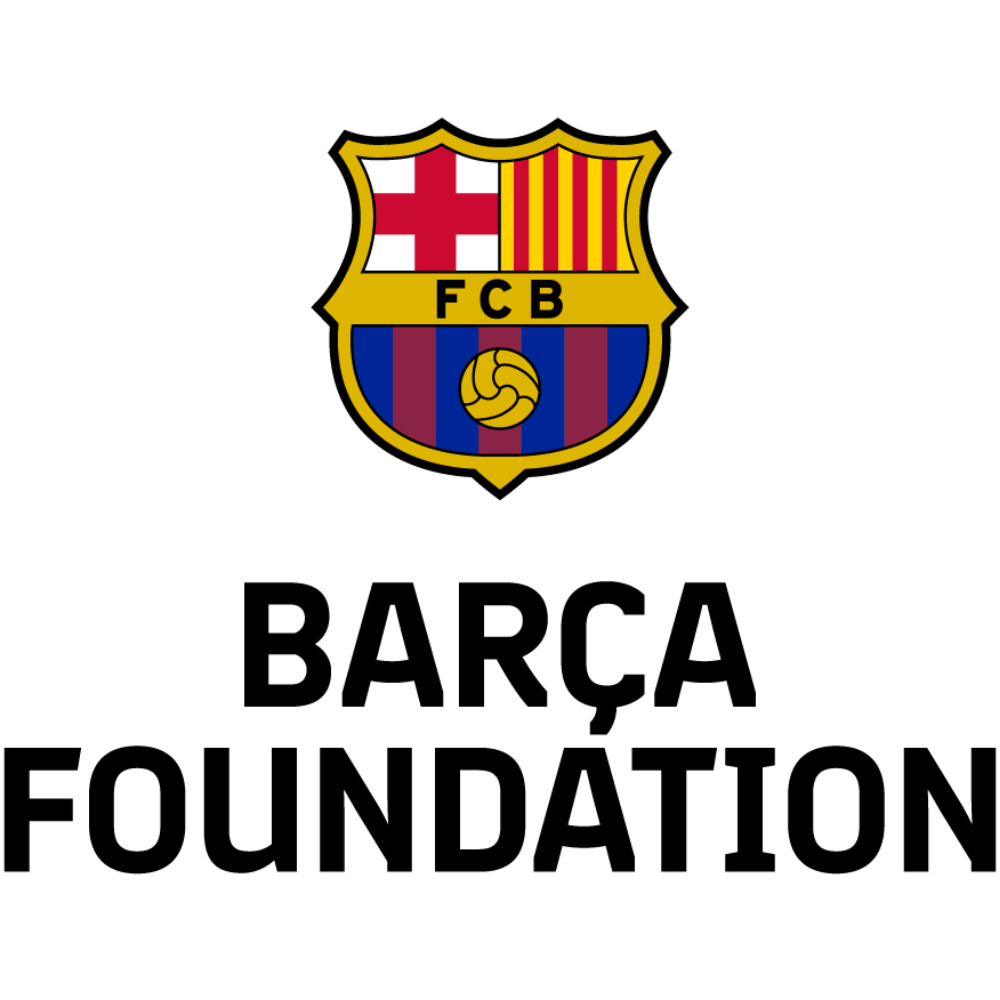
Barça Foundation – For Refugees

Barça Foundation – Against Violence

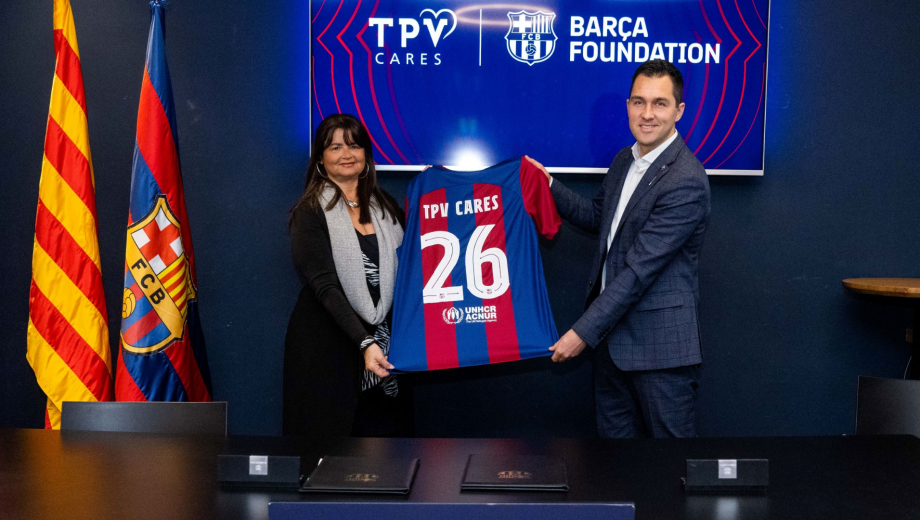
FC Barcelona provides audiovisual technology for vulnerable children with their new partner

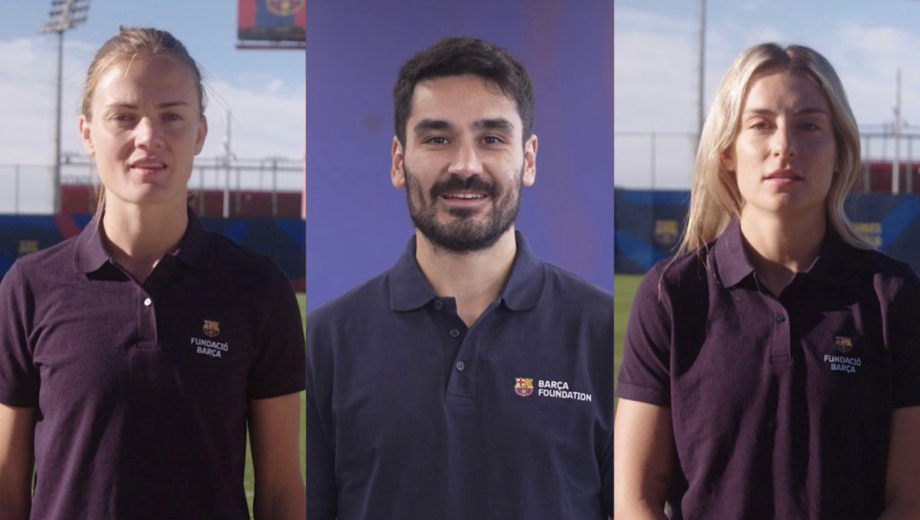
FC Barcelona Foundation has launched a new campaign to raise awareness of its work

